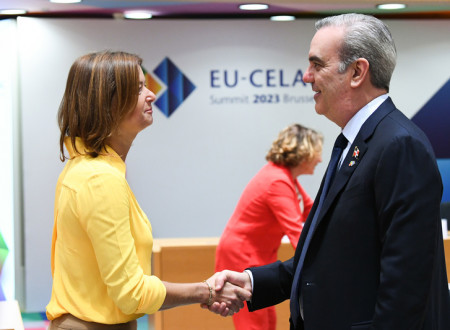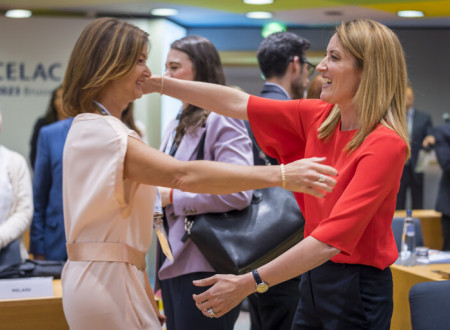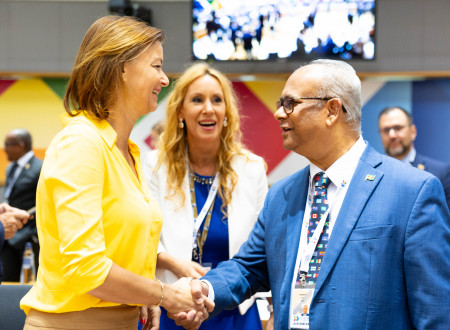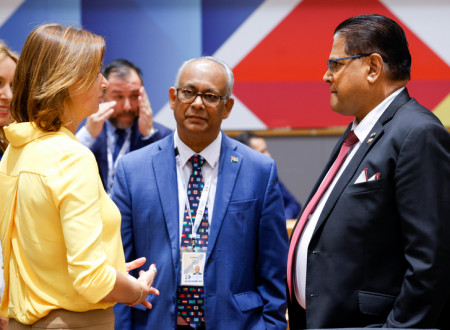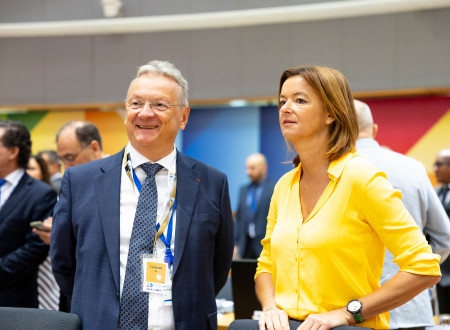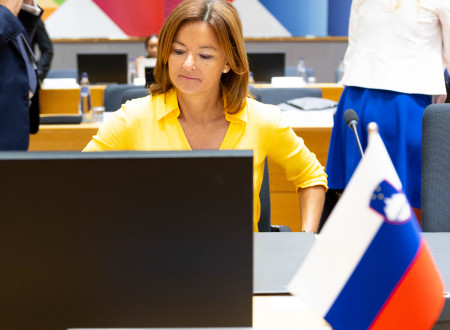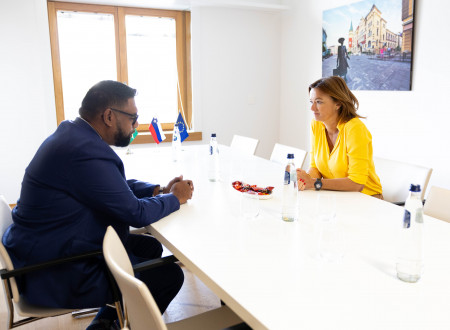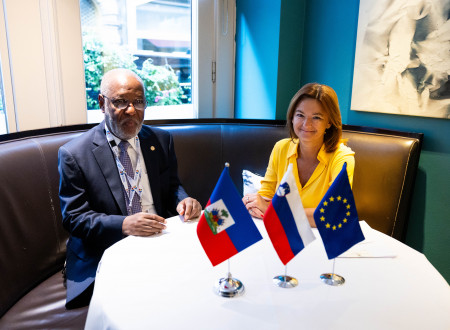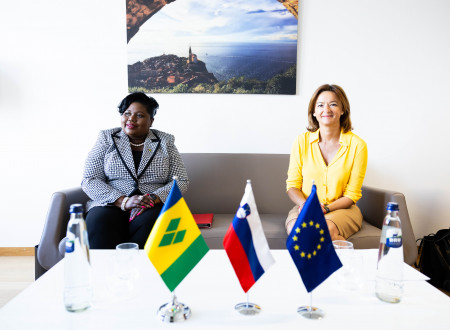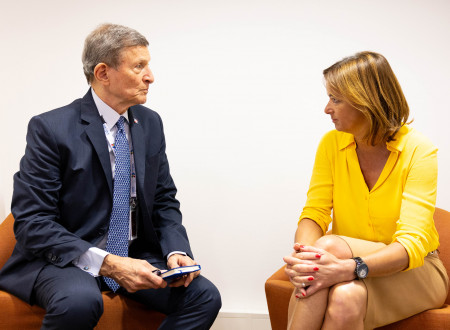Deputy Prime Minister and Minister of Foreign and European Affairs Tanja Fajon at the EU-CELAC summit
"The summit is important for several reasons. Primarily, we seek more cooperation with like-minded countries that share common values, interests and challenges when it comes to tackling climate change. We need to ensure a ‘fair’ green and digital transition, leaving no one behind, and to put in place a sustainable financial mechanism to promote sustainable development", said Minister Fajon, welcoming the first EU-CELAC summit at the level of heads of state and government after eight years. At the summit, the European Commission President von der Leyen announced an over EUR 45 billion-worth European investment in Latin America and the Caribbean by 2027 through the Global Gateway initiative.
For Slovenia, Latin America and the Caribbean is an important partner, both politically and economically. Since 2018, the Ministry of Foreign and European Affairs has regularly organised the Latin America and Caribbean Days international conference to strengthen all-round cooperation and dialogue with the countries of the region. Last October, Minister Fajon also attended the EU-CELAC Ministerial Meeting in Buenos Aires, which provided the impetus for a renewed high-level summit, and there she met with a number of ministers from the region. Slovenia is actively participating in the EU's regular dialogue with the LAC region as well as in the Team Europe Initiatives as part of the EU-LAC Global Gateway Investment Agenda, in particular in the areas of digitalisation and artificial intelligence. Together with Spain, Slovenia – in the desire to contribute to the development of relations and cooperation with the region – launched an initiative for an EU-LAC digital partnership for trustworthy artificial intelligence to foster cooperation and a common approach to the development and use of this technology.
"During the intensive campaign for non-permanent membership of the UN Security Council, Slovenian diplomats held many talks with high representatives of Latin American and Caribbean countries to learn of their biggest challenges," said Minister Fajon and added that Slovenia, as a future non-permanent member of the UNSC, will act as a unifying force and work towards constructive solutions. "Our efforts will focus on climate security, we will work on conflict prevention and the protection of water resources and devote special attention to the implementation of the Women, Peace and Security Agenda," she said, describing the priorities of Slovenia's membership of the UNSC in the 2024-2025 term. She went on to express her satisfaction over the anticipated close cooperation in the UNSC with Ecuador and Guyana, also a newly elected non-permanent member of the UNSC.
On the margins of the summit, Minister Fajon held several bilateral meetings: with Mohamed Irfaan Ali, President of Guyana, Roberto Álvarez Gil, Minister of Foreign Affairs of the Dominican Republic, Jean Victor Geneus, Minister of Foreign Affairs of Haiti, Kerrie Drurard Symmonds, Minister of Foreign Affairs and Trade of Barbados, and Keisal Peters, Minister of Foreign Affairs and Trade of Saint Vincent and the Grenadines, the country currently holding the presidency of CELAC.

